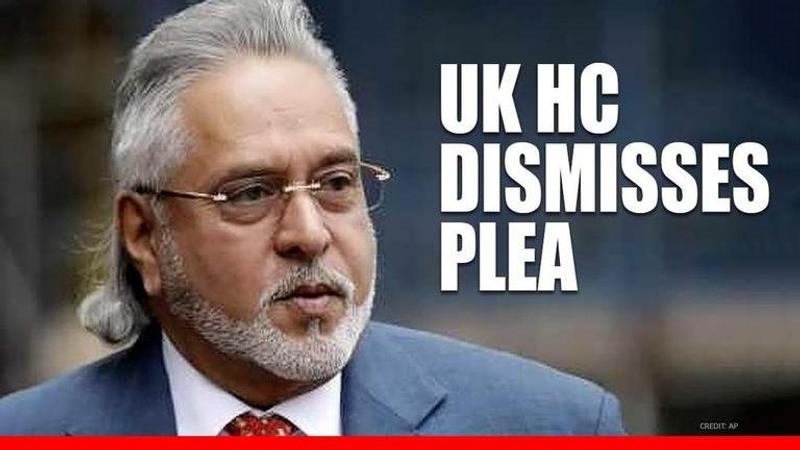Published 16:06 IST, April 20th 2020
BIG: UK High Court rejects Vijay Mallya's plea against his extradition to India
The Queen's Division Bench, High Court of Justice of the United Kingdom on Monday dismissed businessman Vijay Mallya's plea against his extradition to India.

The High Court of Justice of the United Kingdom on Monday dismissed businessman Vijay Mallya's plea against his extradition to India. The Queen's Division Bench comprising Justices Irwin and Elisabeth Laing did not find merit in Mallya's appeal against the decision of Senior District Judge (SDJ) Arbuthnot of the Westminster Magistrates' Court to sending his case to the Home Secretary. In February 2019, the then Home Secretary Sajid Javid approved Mallya's extradition to India.
Mallya faces serious charges of fraud and money laundering pertaining to the amount borrowed by Kingfisher Airlines (KFA) from several Indian banks. Mallya, who reached the UK in 2016 was out on bail since his initial arrest in April 2017. In 2019, he became the first person to be declared as a fugitive economic offender on a plea of the Enforcement Directorate.
The court verdict
In the verdict, the bench rejected the submission that the SDJ was wrong to find a prima facie case of conspiracy to defraud. Moreover, it held that there is a prima facie case of misrepresentation, conspiracy and money laundering on the part of Vijay Mallya. Thereafter, the judges noted that there was a prima facie case in which 7 important aspects coincided with the allegations in India. As per paragraph 180 of the court judgment, these are as follows:
a) The three loans were disbursed as the result of a conspiracy between the named conspirators.
b) The loans were made despite KFA’s weak financials, negative net worth and low credit rating.
c) The loans were made despite the fact that KFA, as a new customer, did not meet the norms of IDBI’s Corporate Loans Policy.
d) The Appellant was party to false representations to induce the loans that funds would be inducted by way of unsecured loans, global depository receipts and equity.
e) The Appellant was party to false representations about inward investment, an exaggerated brand value, misleading growth forecasts, inconsistent business plans (including the January 2009 business plan).
f) The Appellant was party to the offer of “symbolic” and “grossly inadequate security” in the form of a negative lien on 12 hire purchase aircraft, despite knowing that KFA would not get title to them during the period of the loan.
g) The Appellant’s dishonest intention not to repay the loans is shown by his later conduct in trying to avoid the personal and corporate guarantees.
Updated 18:27 IST, April 20th 2020




